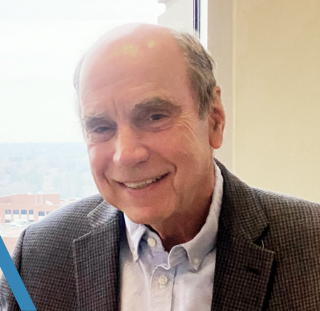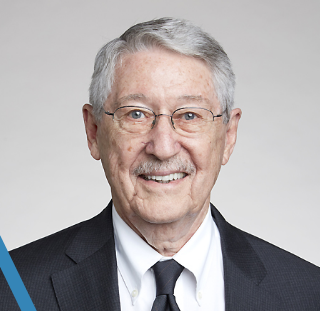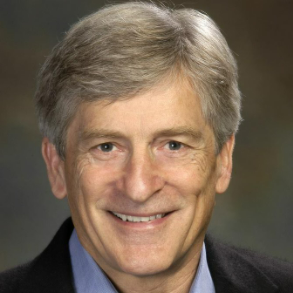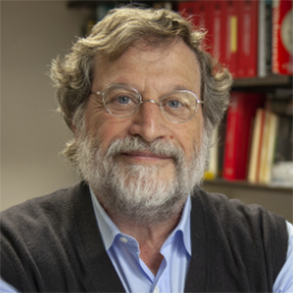
Edward Cannon received his doctoral degree in Biochemistry from the University of Georgia, completed postdoctoral training at Harvard with Dr. Edgar Haber, a pioneer in the study of antibody structure and function, and has held staff and faculty positions at Harvard Medical School, Brandeis University, and the University of Massachusetts Medical School. He was the scientific founder and Chief Scientific Officer for Hygeia Sciences, developer of the First Response™ Home Pregnancy and Ovulation Predictor products, the first monoclonal antibody-based home diagnostic products, and led Hygeia’s Initial Public Offering (IPO). He was CEO of Protein Engineering Technology, developer of phage display technology, and led the merger of Protein Engineering with Biotage to form Dyax Corp, a biotherapeutics development company, where he was President of Dyax’s Therapeutic and Diagnostics business unit and led Dyax’s Kalbitor™ recombinant protein therapeutic development program and co-led the company’s IPO. Subsequent to Dyax he has participated as a founder, operating CEO, and/or a director of a number of early stage biotechnology companies including Hypnion (founder), a small molecule discovery company focused on the biology of sleep and circadian rhythms acquired by Eli Lilly, Elixir Pharmaceuticals (founding CEO), a small molecule discovery company focused on the biology of aging, Adipogenix (CEO), a small molecule discovery company focused on adipocyte biology acquired by OSI Pharmaceuticals (now Astellas), Aerovectrx (interim CEO), an aerosol drug delivery company, Smart Cells Inc. (Director), developer of a novel glucose responsive insulin composition for diabetes acquired by Merck, and Unigen Inc. (CEO), a developer of natural products-based active ingredients for food supplements, cosmetics and skin care products, and prescription medical foods and herbal medicines.

Max D. Cooper is a Professor of Pathology and Laboratory Medicine at Emory University and has been engaged in comparative studies of lymphocyte development and function with a special emphasis on B lineage cells. He and his colleagues have used this information to study defects of B cell differentiation in immunodeficiency diseases, lymphoid malignancies and autoimmune diseases. Research highlights include delineation of the functionally-intertwined T and B cell lineages, identification of the hematopoietic tissue origin of B lineage cells, identification of precursor B cells, demonstration that IgM-bearing B lymphocytes give rise to B cells that switch to the production of other Ig isotypes and discovery of an alternative adaptive immune system in jawless vertebrates featuring antigen receptors generated by the assembly of leucine-rich repeat sequences during development of T-like and B-like lymphocyte line ages. Current studies focus on evolution of the adaptive immune system and the development of monoclonal lamprey antibodies for biomedical uses. Dr. Cooper is a member of the National Academy of Sciences of the USA, the Institute of Medicine of the National Academies, and the Royal Society of Medicine. He is the recipient of the Samuel J. Meltzer Founder’s Award of the Society for Experimental Biology and Medicine (1966), the Sandoz Prize in Immunology (1990), the 3M Life Sciences Award (1990), the American College of Physicians Science Award (1994), Lifetime Achievement Awards from the American Association of Immunologists (2000) and the Clinical Immunology Society (2004), the Award for Distinction in Biomedical Research from the Association of American Medical Colleges (2008), Avery-Landsteiner Prize (2008), the Robert Koch Prize (2010), the AAI Excellence in Mentoring Award (2012), the Japan Prize (2018) and most recently, the Lasker Prize, which often presages the Nobel Prize.

Greg Dane advises Georgia Research Alliance (GRA) portfolio companies and was most recently Director of GRA’s Industry Fellows Program. Prior to joining GRA, he was Director of Innovation in the Department of Biomedical Engineering at Georgia Tech and Emory University where he was instrumental in commercializing numerous university-based medical technologies through licensing and startup creation. Prior to this role, Mr. Dane served for ten years as President and Chief Executive Officer of three development-stage bioscience companies, and fifteen years in various senior management positions with Baxter Healthcare Corporation, including General Manager of Research and Development in Europe. He has served on numerous Boards of Directors, and has been an advisor in Atlanta to the Center for Innovative Cardiovascular Technologies, the Pediatric Cardiovascular Consortium, the Translational Research Institute for Biomedical Engineering and Science, and the Global Center for Medical Innovation. Mr. Dane received both a Bachelor of Science degree and a Masters in Engineering from Cornell University.

James C. Paulson, Ph.D. is the Cecil H. and Ida Green Professor and co-chair of Department of Molecular Medicine at The Scripps Research Institute and was a principal researcher and founding director of the National Institutes of Health-funded Consortium for Functional Glycomics. Dr. Paulson’s research combines biology and chemistry to understand how the interaction of glycan binding proteins with their ligands mediates cell-cell interactions, endocytosis and cell signaling. His discoveries have revealed the essential role of these interactions in emergence of new human influenza viruses and regulation of immune responses for maintaining human health. These ground-breaking discoveries have been recognized by numerous awards including: Melville L. Wolfram Award, Karl Meyer Award, Bijvoet Medal, Northeastern University Barnett Lecture, and United States EPA Green Chemistry Challenge Award.

Jeffrey V. Ravetch, M.D., Ph.D. is the Theresa and Eugene Lang Professor and Head of the Leonard Wagner Laboratory of Molecular Genetics and Immunology at the Rockefeller University. His research has focused on the Fc domain of antibodies and their receptors, revealing the mechanisms by which antibodies mediate and regulate their diverse protective functions. His discoveries have enabled the redesign of antibodies to enhance their therapeutic capacity for the treatment of infectious, neoplastic and inflammatory diseases, and are widely credited for the clinical success of monoclonal antibodies now the largest and fastest growing class of therapeutics. Dr. Ravetch has received numerous awards including the William B. Coley Award, Sanofi-Institut Pasteur Award, Gairdner International Prize, Wolf Prize in Medicine, Ross Prize in Molecular Medicine and the Robert Koch Medal and Award. He is a member of National Academy of Sciences, the National Academy of Medicine, a Fellow of the American Academy of Arts and Sciences and a Fellow of the American Association for the Advancement of Science. He has contributed extensively to the scientific community by serving as a member of the Scientific Advisory Boards of the Cancer Research Institute, the Irvington Institute for Medical Research, the Damon Runyon Foundation, the medical advisory board of Gairdner Foundation, the Sanofi-Pasteur Award Jury and the L’Oreal Women in Science Jury.
